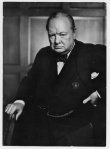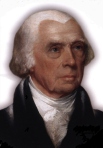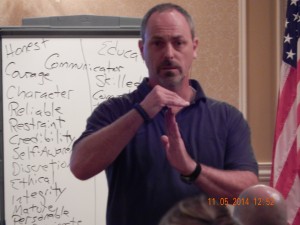I recently received this email message from a student of Police Dynamics and aspiring law enforcement leader from a western Sheriff’s Office asking for advice. I thought my other readers might like to read his request and my response…
Hi Ray,
I’ve been with the department for 6 years now in the detention facility and am now attending the Law Enforcement Academy. I have been elected as the president of my class, and am wondering if you have any guidance you can provide as to how I can be an effective leader. I know you have a lot of experience and hope that you can share some of that with me.
Here is my response…
I would be glad to help in any way that I can. Just the fact that you have sought me out shows a lot about your character and potential as a leader. First of all, good leaders are humble, teachable, and always putting the needs of others first. Leading by example is not an outdated idea. It is the essence of leadership.I have always sought to model my own leadership style after others that I admire. Historical figures, like George Washington or Stonewall Jackson, have been great inspirations to me, as well as living examples who have mentored me over the years. One caveat is that current mentors will oftentimes let you down. They are only human too. So take the good and learn from the bad that you find in them.Read, read, read. There is so much out there on leadership and I suggest you find books and/or videos from authors who you respect. Look for those that approach leadership from a character-based perspective. Steven Covey has some great stuff as does John Maxwell. Doug Dickerson, who is a frequent guest-poster on the Police Dynamics blogsite, offers an excellent book you might want to consider. I have an e-book that is available for sale on the site that you might also consider. Training courses are also good. Take advantage of all that you can.Remember this, the greatest leader who ever lived said, “I came not to BE served, but TO serve” and “He who would be the greatest among you must become the servant of all.” Follow this principle and you can’t go wrong. Look for ways to serve others, to help them achieve their goals, and to become more successful. Leadership will come when you are ready. It sounds like you are well on your way with the class presidency. Find ways to serve your fellow classmates instead of yourself and you will stand out in a positive way.Please stay in touch and let me know if there is any other way that I can help you along your path. But also remember this: the path of leadership is the path of MOST resistance. There is heartache and struggles ahead for the true leader. But for those who are called to it, there is no other way…!Ray
 “Courage is the first of human qualities, because it is the quality which guarantees all others.” Winston Churchill
“Courage is the first of human qualities, because it is the quality which guarantees all others.” Winston Churchill
As of tonight, we hit the 20,000 mark on the Police Dynamics Blog Site! Thank you for your interest and support of these character-based principles of effective law enforcement. Please pass the link on to your friends and colleagues so we can build an even stronger base of those who support and believe in these powerful principles…
This is one of the most powerful character-based training videos I have ever seen. Produced by the Character Training Institute, this heart-warming instructional video uses an elementary school project to emphasize the importance of putting character first. So often, our culture focuses on treating the symptoms rather than fixing the problems….
 Courage is fear holding on one minute longer.
Courage is fear holding on one minute longer.
Gen. George S. Patton
As the 10th anniversary of the September 11, 2001 attacks draw near, like so many of you, I can vividly recall where I was and what I felt as I watched the horrific events of that day unfold. It’s been said that time heals all things. And while the memory of that day will never fade it is our prayer that the healing continues.
In the aftermath of 9/11 thousands of heroes descended on New York City, the Pentagon, and the countryside of Pennsylvania to assist the survivors and their families. One of those heroes was firefighter Bob Beckwith.
After 29 years of service, Beckwith had already retired from the New York City Fire Department when the events of 9/11 unfolded. When he learned that a former colleague’s son was among the hundreds of missing firefighters, he made his way down to ground zero and convinced authorities to let him pass. He then joined the search to find survivors.
 Two days after the attack President George W. Bush went to New York City and visited the site at ground zero. Asked to say a few words to encourage the workers, Bush climbed aboard a partially buried fire truck. With Beckwith by his side, he spoke the now famous words through a megaphone, “I can hear you, the rest of the world hears you, and the people who knocked these buildings down will hear from all of us soon.” The picture of the two has become one of the most iconic photos from that time.
Two days after the attack President George W. Bush went to New York City and visited the site at ground zero. Asked to say a few words to encourage the workers, Bush climbed aboard a partially buried fire truck. With Beckwith by his side, he spoke the now famous words through a megaphone, “I can hear you, the rest of the world hears you, and the people who knocked these buildings down will hear from all of us soon.” The picture of the two has become one of the most iconic photos from that time.
Ralph Waldo Emerson said, “A hero is no braver than an ordinary man; he is brave five minutes longer.” It was the bravery of Beckwith along with thousands like him, who in the face of adversity, teach us much needed leadership lessons today. As you reflect on the events of 9/11, here are three take-away leadership lessons to apply in honor of those who lost their lives, and those who served in its aftermath.
Ordinary people answer the call during extraordinary times.
It would have been easy for Beckwith to sit at home and leave it to others to sift through the rubble. After all, he had already done his duty. But not Beckwith.
Cicero said, “It is the character of a brave and resolute man not to be ruffled by adversity and not to desert his post.” And this was the attitude of brave firefighters, first responders, and thousands of other ordinary people who answered the call of duty during extraordinary times. In times of adversity, leaders like Bob Beckwith do not sit by the phone waiting on a call, they show up.
Ordinary people make great sacrifices.
Working in shifts around the clock, workers at ground zero tirelessly searched for victims in the rubble. Volunteers from across America and around the world assisted in the clean up and recovery efforts. Ordinary citizens conducted bake sales, donated blood, and found many creative ways to help meet the challenges our country faced.
While not all of the names of individuals who made sacrifices will be remembered, let us not forget the courageous circumstances under which they were performed. Abraham Lincoln said, “Don’t worry when you are not recognized, but strive to be worthy of recognition.” And this is your call to leadership, not to make a name for yourself, but to serve great causes. Sacrificial leadership remains a noble calling.
Ordinary people give hope for a better tomorrow.
The days following 9/11 were a dark time for our country. The overwhelming sense of loss coupled with a sense of security that had been taken for granted was shattered. We were shaken to our core.
Yet instead of cowering in despair and defeat, we came together- not as Republicans or Democrats, but as Americans. We set aside our petty differences to rally around a greater cause. We rallied our communities, our collective love of country, and faith in God in order to show the world that while we may be wounded, we would not be defeated.
Who are the leaders that make America great? Look around you. They do not relish fancy titles or status symbols. They are ordinary people like you.
© 2011 Doug Dickerson
Doug Dickerson is an award winning columnist and leadership speaker. He is the author of the book, Leaders Without Borders: 9 Essentials for Everyday Leaders. A Lowcountry resident, Doug is available to speak for your civic, business, or church group. Visit www.dougsmanagementmoment.blogspot.com for more information.
– E. M. Gray
 “The aim of every political constitution is, or ought to be, first to obtain for rulers men who possess most wisdom to discern, and most virtue to pursue, the common good of the society; and in the next place, to take the most effectual precautions for keeping them virtuous whilst they continue to hold their public trust.”
“The aim of every political constitution is, or ought to be, first to obtain for rulers men who possess most wisdom to discern, and most virtue to pursue, the common good of the society; and in the next place, to take the most effectual precautions for keeping them virtuous whilst they continue to hold their public trust.”
